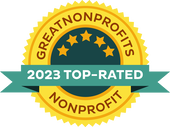From the Ground: Recentering, Homes and Deeper HealingRed Feather Program Coordinator Elizabeth Freeman speaks on the power of re-centering, the need to celebrate success, incorporating education into everything we do, and when a home assessment is so much more than a home assessment. 'Since we’ve grown our Direct Solutions program, which provides a limited budget for home repair materials for families across both Hopi and Navajo, we’ve seen a huge increase in the number of calls and applications. It’s been exciting but it’s also been a lot! Remembering the big picture is essential for me when I get overwhelmed with the amount of demand we are facing, or the amount of calls that come in during the day. People are facing a lot, and this is our way of doing something immediately, of meeting immediate need. The growing of the Direct Solutions program is intended to be that, and in so many ways it is succeeding. 'Acknowledging and celebrating that re-centers me. 'Despite the struggles, we are doing so much good work. I mean, we are really doing SO MUCH, reaching so many homes. And sometimes, in the constant drive to do more, we don’t always take the time to stop and spotlight and celebrate what we are doing, which is so important. Because we are reaching a lot of people. When you are as dedicated as we are to trying to help and to serve, it can be overwhelming to come in in the mornings and just see ‘Oh, I have 30 missed calls and 50 new emails’ but the power is in realizing that these are all people we are reaching and people that will be helped. 'I’m a big believer in stopping to recognize accomplishments and celebrate them. The truth is that Red Feather has grown a lot and is doing amazing work, so let’s acknowledge and get joy out of that too, while also recognizing that of course there will always be more work to do. 'I don’t think anyone should undersell what they’ve managed to overcome or succeed at, and that goes for both our employees and those that we serve. People just need to hear “You are doing fantastic!” and this can start a positive cycle of encouragement and self-belief. As we are focusing on meeting these immediate physical needs in the home through our Direct Solutions program, there’s this other side too of just making sure people feel seen and acknowledged. I think this is something we all need. 'When we are in the field a lot, we have to focus on the negative aspects. When you are doing home assessments, you have to look for what is wrong in the home in order to find what is most needed. So this sort of negative focus has to be there, and especially when you are working in communities with endemic poverty and centuries of oppression and trauma, sometimes it’s easy to see only that, to stay in the negative, to just be in the thought process of “how did people get to this point?” 'But there is such a powerful mindset switch we can do too. Like yes, when we are doing home assessments we focus on the negative, but there is also space for the positive in our interactions. 'This is where our education programs come in, because there is a space for change and hope and possibility when people have life tools and not just home fixes. Knowledge cannot be taken away from you. There are so many types of education too, you don’t have to have a degree to gain knowledge. 'At Red Feather, what we want to do is also provide a pathway to the power of knowing that you can take care of yourself. I think that there are many layers to things, and yes its great to have your home fixed, to have heating, to get these needs met, but then there is the deeper emotional level, also the emotional healing, that can come from a feeling of "I can take care of myself." 'This is how I see our programs coming together. We all have a hierarchy of needs. With the Direct Solutions program, and also our HHESI and other home repair programs, we target that base layer on Maslow's pyramid. We all need a home, we need somewhere to sleep, somewhere safe to be, to be warm. Of course we all need that. 'But I don’t want to just leave someone with a healthy home kit and call it a day. We are trying to leave people with something that they can use, that they can pass on to the next generation, that can have a longer-lasting impact. 'I mean, look, we are trying to address this major, age-old housing crisis on the Hopi and Navajo reservation. That’s what Red Feather is here for. But how can we move from just immediate crisis response to preparation, to prevention? I think that incorporating education, financial literacy, all of it, into everything we do is key. 'It is my intention and hope that people pass this all on to their kids, that we can all become better examples, that the next generation has something more to work with. 'My hope is that I can give people the tools, the resources, so that when tough situations come up they have something to throw at that, to address that. We are working on this as a key aspect of our programs at Red Feather all the time. 'People’s actions reflect their mindset and their current emotional state. There’s always a reason for why people are in the situation that they’re in. We all express our needs in different ways. We don’t always know what people have gone through, but we are all human. Having one’s needs be ignored is a kind of neglect. At its most basic what we do at Red Feather is try to see people’s needs, to make sure that people know we are seeing them. That they’ve been noticed, that someone cares, that they’ve been heard. 'It might seem simple, like we just provided someone with a smoke alarm, fixed their window, gave them a safer stove, but in this context of deep historical and cultural trauma, what I think this can also give, or at least I hope this can also give, is a sense that at least someone saw me today, cared about the situation I was in. At least, if no one else did today, Red Feather saw that need and tried to do something, cared, was there to be present.'
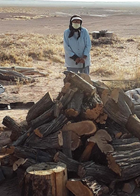 "I want to share a story with everyone about the firewood program. We receive calls every day from people requesting firewood. Many are no less dire than this one: A woman called the office, desperately asking us to deliver firewood to her neighbor. He was burning his furniture because he was out of wood and would never ask for a hand-out. He was elderly and physically unable to go out to gather, cut and split his own wood. The woman said she had reached out to other organizations for assistance with the situation but found that it was a problem finding any wood, even though many organizations had been trying to help with the firewood issue. This is not an uncommon story that we hear. I have heard of clients burning worse things than furniture. Some have burnt clothes, lumber, combustible debris or any other thing they can, just to stay warm for a few more hours. Of all the programs that are on my plate, it is this one that makes me take phone calls at any time of day, from 7:00 in the morning to 10:00 at night from clients and vendors. It is what makes me say, I will pay any price to get wood to people. It’s what makes me say, thank god that I am a part of this organization. It is the most tangibly good and direly needed program that this organization has asked me to participate in.” - Darleen Cortez Red Feather Program Coordinator Story by Shannon Maho, Program Coordinator I have known about Red Feather for more than five years, and have been the Program Coordinator for the last year. Prior to being a Red Feather staff member, I was a volunteer for small projects and during a straw bale house project at Hopi in 2014. Prior to coming to Red Feather, I completed degrees in sustainable green building and interior design, while gaining hands-on experience in the private and government construction industries. I truly enjoy having the opportunity to give back to my Navajo and Hopi tribal communities. I am proud of the positive impacts Red Feather’s programs have on the families we help. The team effort that exists among Red Feather staff, and the communities we serve to develop and implement solutions for local housing needs, ensures our work has a lasting positive impact. As the Program Coordinator, my responsibilities are processing applications for the programs, coordinating projects-both big and small, and working with independent contractors and the homeowners to ensure our work is effectively implemented. I’m especially proud of our efforts to develop the local workforce by hiring skilled labor workers and contractors from our partner communities, and providing them with the support they need to be successful. I believe deeply in program efforts to provide hand-ups and not hand-outs wherever possible, by encouraging families to get involved any way they can in their home repair projects. Even without asking, many offer to prepare meals for the workers and donate craft items as part of their gratitude. Red Feather shares many stories through social media, so please check our Facebook and Instagram pages to see how our services help to build ramps, weatherize homes, repair roofs, and educate and empower homeowners to maintain a healthy home. Red Feather regularly offers free workshops to Navajo and Hopi communities. Our Do-It-Yourself style workshops, including Healthy Heating, Women’s Home Maintenance, and Home Weatherization, are highly popular and often have dozens of names on a waiting list. In the past six weeks we’ve completed three Healthy Heating workshops at the Hopi Sipaulovi Youth and Senior Center. These workshops focus on wood stove maintenance and safety, teach fire safety presented by the Hopi Fire Department, and provide information on alternative heating sources and on-site visits. Here are two stories I’d like to share that highlight the positive impact of our work: 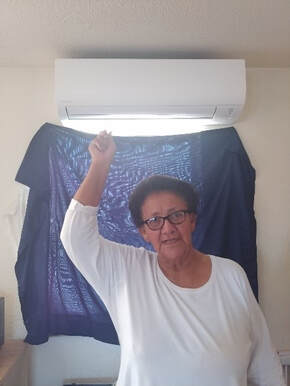 Recipient of a new heating and cooling system Recipient of a new heating and cooling system An elderly lady living on the Navajo reservation applied for our NHRN program and we were able to get her qualified for weatherization services, as well as our USDA Housing Preservation Grant that enables us to provide extended health and safety home improvements. By the end of her project, she finally had a bathroom with working toilet, and to her relief no longer has to leave her home to use the facilities at neighboring convenience stores. Before, her primary heating source was a space heater, which was replaced with a mini-split heating and cooling unit that alleviates safety hazards, spares her from gathering firewood, and lowers her heating cost. She also had a ramp built to prevent falls for both herself and her daughter, who also has mobility issues. The homeowner said, “I had applied and asked for assistance from other organizations and programs, and Red Feather was the first to knock on my door". She was well deserving of our services, for she has raised many foster children and from the stories she tells, they are now doing well and attending college. 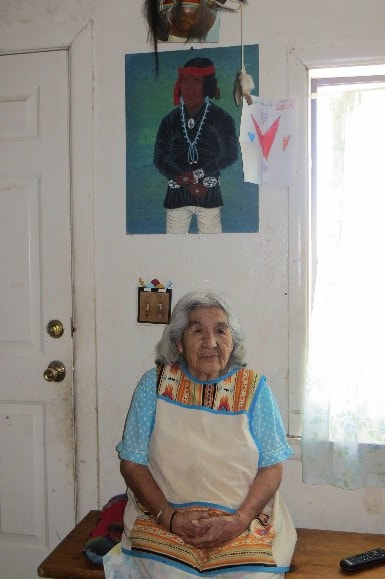 Another elderly woman, from the Hopi nation, recently benefited from our weatherization program but still had many outstanding home repairs that we were not able to resolve with any of our current grant sources. However, through the means of a donor-sponsored fundraising campaign, she will soon be the recipient of a mini-split heating and cooling system and an indoor and outdoor ramp for safety measures. Currently, she has a wobbly plastic step that is so dangerous for her to use, she has told us, that she doesn’t leave her home. This woman is just the sweetest. We are all ecstatic that she will be given the help and services she needs. My experience working with Red Feather has been nothing but fulfilling. I am excited to go to work every day and often find it hard to pull away from work at the end of the day. My favorite part of what I do is visiting the families throughout the duration of their project. In the end we see how just knocking on their door from the very first visit made a difference in resolving their home improvement issues for a safer and healthier living environment. After that first visit, it’s not just a simple hello- hugs are given. At times it does get emotional for me; many of our clients are elderly and they deserve the ultimate respect and care. I am so happy that Red Feather can provide that in what we offer. Being able to go home to the Hopi and Navajo reservation as part of my job is an added bonus, and I am constantly learning who my relatives are. Now I can say I have so many more grandmothers and grandfathers. It’s important to care and respect our elders and veterans. Respect is what I teach my children, not only for the human race, but also for nature and the environment. Respect. Kyaptsi (pronounced kep-si). Thank you, Red Feather, for giving me the opportunity to be a part of this organization that has proven to help so many of my people. Askwali Ahéhee' Nearly one hundred Hopi tribal employees and community members came out to support their local non-profits at the first ever Hopi Gives Day event in the Village of Kykotsmovi, Arizona on Friday. Red Feather and 2 other non-profit organizations, The Hopi Foundation, and Hopi Education Endowment Fund partnered to host the event to raise awareness about their programs and an annual state-wide fundraising competition that we are participating in called Arizona Gives Day. It is exciting to see our Hopi non-profits collaborating to raise awareness and donations, said The Hopi Foundation’s Executive Director, Monica Nuvamsa. “We can do so much more when we work together”, she added. The event was held at the Kykotsmovi Community Building and included door prizes, food, music from local musician Ed Kabotie, and information from the 3 non-profits about their programs. Chairman of the Hopi Tribe, Herman Honanie, was in attendance and sent an email to all tribal government employees that day encouraging them to support their local non-profits who are participating in Arizona Gives Day. Arizona Gives Day, which falls on April 4th this year, has raised over $7.4 million for Arizona nonprofits since 2013. Arizona non-profits, which account for 325,000 jobs and nearly 10% of the state’s annual income, are competing for cash prizes totaling $175,000 this year. “We are grateful to our partners APS, Hopi Cultural Center, Hopi Kokopelli Inn, and Hopi Telecommunications for sponsoring the event,” said HEEF Executive Director LuAnn Leonard. She continued, “Non-profits, businesses, and community members all working together is a beautiful thing that strengthens our collective ability to answer the needs of our people. While Arizona Gives Day is intended to benefit Arizona non-profits, all Red Feather supporters are encouraged to participate because stronger programs serving Hopis and Navajos in Arizona will allow us to more quickly bring those programs to Tribes in other states. Red Feather realizes that many of you recently made gifts during our annual appeal. If you are able to make a gift at this time, it would be very much appreciated. If you aren’t, we understand, and ask that you please consider sharing our work with a friend so that they might become involved. Our strength is dependent upon sharing the load. You and your friends can make gifts on or before April 4th at azgives.org. You can always give to Red Feather at www.redfeather.org. Thank you! By Mark Hall 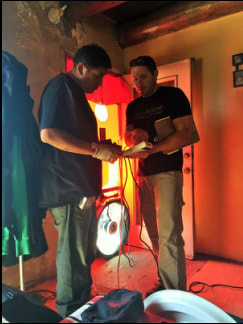 As reported in the spring newsletter, Red Feather launched a new home weatherization program in April. The program is funded through a contract with Arizona Public Service (APS) which reimburses Red Feather for all qualified weatherization expenses incurred on APS customer homes up to $6,000 per home. APS provides electricity to those residents of Hopi and the Navajo Chapters of Tuba City and Cameron; at least to those fortunate enough to be connected to the grid. To get the program started we are partnering with the Hopi Village of Shungopavi, where we are grateful to have the guidance and assistance of their Village Community Service Administrator, Sandy Whitehair. Since the program’s debut, the energy efficiency, comfort, health and safety of 15 homes that are occupied by 56 individuals have been drastically improved. An additional 16 homes are in-line for services, with new applications being submitted each week. We have contracted with a great weatherization expert, Eli Chamberlin of CozyHomes Inc. He is employing three full-time Hopi workers and is looking to hire another who is skilled in carpentry, and dry-walling. These are new jobs in the community that did not exist before. Five households have been transitioned to Red Feather’s Native Home Resource Network (NHRN) program due to excessive health and safety issues in the home that make it ineligible for the weatherization program. NHRN is a program funded through a grant from Wells Fargo that matches families with housing needs to resources that exist either in their tribe or outside their tribe. Customer satisfaction surveys from occupants of our weatherized homes have been overwhelmingly positive. “Thank you very much, for your excellent work will help so many families on improving their home where this kind of work would not have been possible.” Another comment we overheard was, “I’m actually looking forward to winter for once!”. To date over $60,000 has directly been invested in materials, labor, and educational outreach for the program and about 40% of that money stays in the community. Red Feather could not be happier with how this program is developing and as soon as we have a little more experience with it we have plans to expand the program to other Hopi Villages and Navajo Chapters. |
Archives
June 2023
Categories
All
|
|
Change your mind at any time by clicking 'unsubscribe' in any email you receive or by contacting us at [email protected]. We will treat your information with respect. For more information about our privacy practices please see our privacy policy. By clicking above, you agree that we may process your information in accordance with these terms.
In compliance with all GDPR requirements- you can request any data you’ve shared with Red Feather to be permanently deleted from our records by contacting us at [email protected]. |
WORKING WITH HOPI AND DINÉ
COMMUNITIES FOR HEALTHIER AND SAFER HOMES.
LAND ACKNOWLEDGEMENT: The Red Feather program office sits in an area that is sacred to over 14 local tribes, including the Diné, Hopi, Havasupai, Hualapai, Zuni, Pueblo, and Kaibab-Paiute peoples. Some of these nations are represented among the Red Feather staff, and some not. We humbly acknowledge this area’s Indigenous nations, original stewards and Native descendants who will forever know this place as home. We share a responsibility to recognize and acknowledge the people, cultures, and histories that make up our community. *Adapted from the Flagstaff City Council land acknowledgement developed by the Indigenous Commission

If you have a disability that limits your ability to access our facilities, please contact us so we can arrange for an alternative meeting location. See our ADA access plan here.
This institution is an equal opportunity provider. |

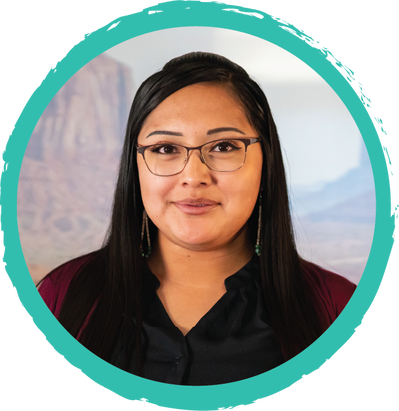



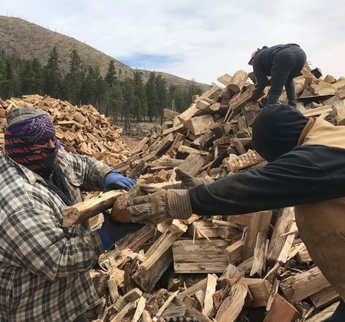
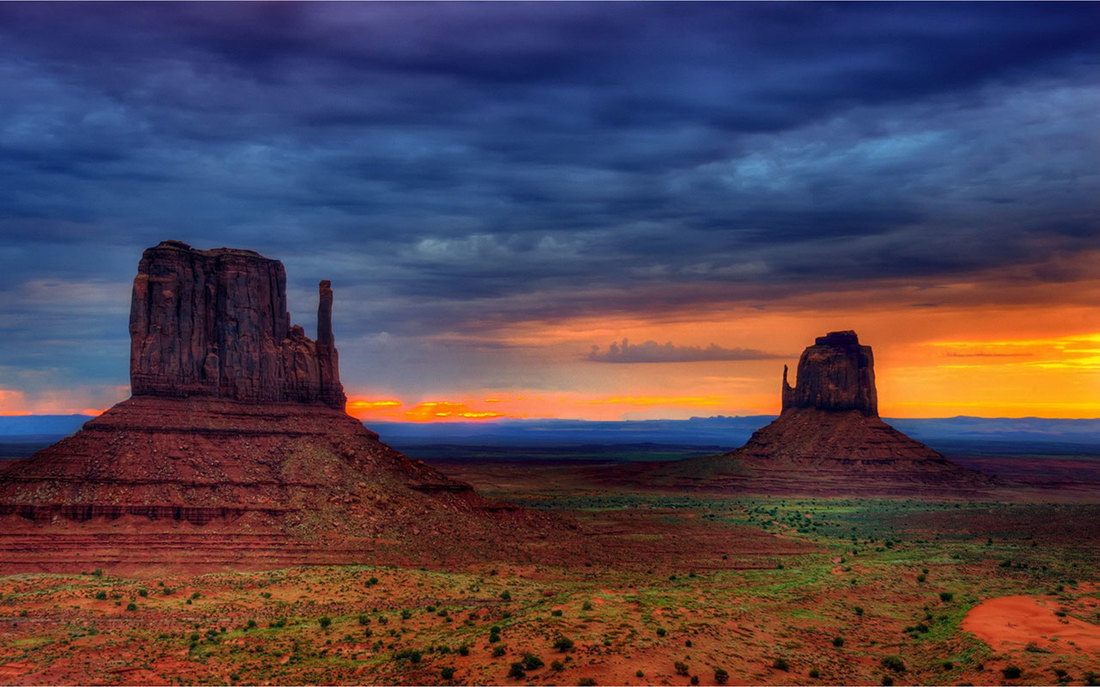
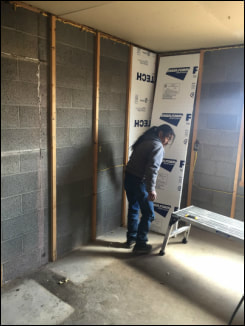

 RSS Feed
RSS Feed

